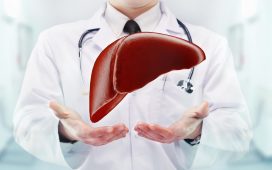Incidence of new-onset autoimmune disease higher compared with those with nonfunctioning pituitary adenomas
By Elana Gotkine HealthDay Reporter
TUESDAY, Feb. 20, 2024 (HealthDay News) — Patients achieving surgical remission of Cushing disease (CD) have a higher incidence of autoimmune disease compared with those with nonfunctioning pituitary adenomas (NFPAs), according to a study published online Feb. 20 in the Annals of Internal Medicine.
Dennis Delasi Nyanyo, from Massachusetts General Hospital in Boston, and colleagues conducted a retrospective matched cohort analysis to examine the incidence of autoimmune disease in patients with CD after surgical remission and those with NFPAs.
The researchers found that at three years after surgery, the cumulative incidence of new-onset autoimmune disease was higher in patients with CD than NFPAs (10.4 versus 1.6 percent; hazard ratio, 7.80). A higher prevalence of postoperative adrenal insufficiency (93.8 versus 16.5 percent) and lower postoperative nadir serum cortisol levels (63.8 versus 282.3 nmol/L) were seen for patients with CD versus those with NFPAs. CD patients who developed autoimmune disease had a lower preoperative 24-hour urine free cortisol ratio (2.7 versus 6.3) and a higher prevalence of a family history of autoimmune disease (41.2 versus 20.9 percent) compared with those without autoimmune disease.
“To our knowledge, this is the first matched cohort study to confirm an association between CD remission and development of autoimmune disease,” the authors write. “The proinflammatory state after CD remission serves as a model for increased immunoreactivity after reversal of hypercortisolemia in acute stress, illness, or withdrawal of glucocorticoids.”
Copyright © 2024 HealthDay. All rights reserved.








